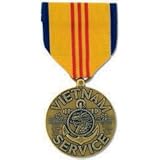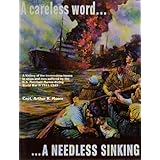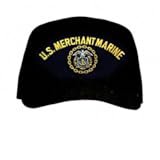More on the Jones' Act: Senator McCain was also in favor of the bill that we described in this post from this past spring.
MERCHANT MARINE INTEREST, Politics, The Jones Act
Editor;s note 3/10/2015: This 2012 account is pretty similar to the annual attacks of John McCain on the U.S. Merchant Marine's Domestic Service Fleet. Why is always the representatives from Arizona and other arid states who attack this element of national security? We suggest two reasons. First they have no Merchant Marine activity in their districts so there is no interested constituency watching them on this issue. Second....follow the money.
The attacks on the Jones Act are sometimes piecemeal as in this example where a U.S. Congressman responding to a foreign lobby was ready to sacrifice American jobs, American Businesses, and American security in a relatively small sector of the Jones Act merchant fleet. Senator McCain participated in this attack. His present attack is more broad based calling the entire Jones Act fleet's security contribution to the United States "laughable" . In these posts and subsequent posts we will make our case for our disagreement and even alarm over his behavior. Please read all that we have to say before dismissing our call for his retirement. The fleet that Senator McCain and his anti Jones Act cohorts think exists is limited to a few American flag conventional tankers and / or cargo ships operating between ports like Baltimore and New Orleans. Their numbers are small and their contribution to commerce minuscule,and indeed it was this sort of shipping that the Jones Act was meant to save in the 1930s. But the American Merchant Marine industry's response to the Jones Act protections was not to build subsidized and protected but uncompetitive ships. Instead they built the modern day towboat and barge industry, the most fuel efficient and economic transcontinental transportation system yet developed by man. It may be slow compared to rail or highway transport but has no equal for non time sensitive cargoes and over sized items. No one foresaw the need for an offshore oil and mineral industry support fleet in the 1930s but the already in place Jones Act protections helped nurture a fleet of thousands of small specialized ships that not only service our offshore oil industry but service contracts all over the world creating and sustaining American jobs and helping in our balance of payments, they represent a rare export of American services. The Jones Act supports a vibrant mini cruise line, day excursion, and ferry boat system., In all there are at least 126,000 on board jobs at stake every time Senator McCain and his cohorts attack the Jones Act. The related Jobs ashore probably exceed the crew jobs.The security contribution and potential of these vessels is enormous as we are trying to demonstrate. The NMA sent a representative to the Senator's office at least four times in the spring and summer of 2012 he was never seen by the Senator. We urge our readers who are U.S. voters to not do what the senator did and turn a blind eye to the facts.
Another Attack on the "Jones Act", Calling A Stinkweed a Rose
The attacks on the Jones Act are sometimes piecemeal as in this example where a U.S. Congressman responding to a foreign lobby was ready to sacrifice American jobs, American Businesses, and American security in a relatively small sector of the Jones Act merchant fleet. Senator McCain participated in this attack. His present attack is more broad based calling the entire Jones Act fleet's security contribution to the United States "laughable" . In these posts and subsequent posts we will make our case for our disagreement and even alarm over his behavior. Please read all that we have to say before dismissing our call for his retirement. The fleet that Senator McCain and his anti Jones Act cohorts think exists is limited to a few American flag conventional tankers and / or cargo ships operating between ports like Baltimore and New Orleans. Their numbers are small and their contribution to commerce minuscule,and indeed it was this sort of shipping that the Jones Act was meant to save in the 1930s. But the American Merchant Marine industry's response to the Jones Act protections was not to build subsidized and protected but uncompetitive ships. Instead they built the modern day towboat and barge industry, the most fuel efficient and economic transcontinental transportation system yet developed by man. It may be slow compared to rail or highway transport but has no equal for non time sensitive cargoes and over sized items. No one foresaw the need for an offshore oil and mineral industry support fleet in the 1930s but the already in place Jones Act protections helped nurture a fleet of thousands of small specialized ships that not only service our offshore oil industry but service contracts all over the world creating and sustaining American jobs and helping in our balance of payments, they represent a rare export of American services. The Jones Act supports a vibrant mini cruise line, day excursion, and ferry boat system., In all there are at least 126,000 on board jobs at stake every time Senator McCain and his cohorts attack the Jones Act. The related Jobs ashore probably exceed the crew jobs.The security contribution and potential of these vessels is enormous as we are trying to demonstrate. The NMA sent a representative to the Senator's office at least four times in the spring and summer of 2012 he was never seen by the Senator. We urge our readers who are U.S. voters to not do what the senator did and turn a blind eye to the facts.
Another Attack on the "Jones Act", Calling A Stinkweed a Rose
"Creating and Restoring U.S. Investment and Stimulating Employment Act" of 2012, 112th Congress, House Resolution 2460. Who could argue with what appears to be the objectives of this bill if one were to judge by its title? Titles are deceptive especially coming out of an organization like our Congress which knows no limits on duplicity. What representative would like to face reelection with a record of having voted against a bill by this title? However calling a stinkweed a rose doesn't make the smelly ugly weed a rose. H.R. 2460 by any name is simply another and deadly attack on the "Jones Act" Cabotage law (see our admiralty law section for a description of "Cabotage law") protections that keep the extensive water borne trade between the American States in the capable, safe, and loyal hands of the United States Merchant Marine (see our Merchant Marine Interest section for the legal definition of the "United States Merchant Marine").
This bill was introduced by Rep. Blake Farenthold, R-Texas and constitutes a wholly unacceptable attack on the protection of our coast wise and internal maritime trades. This act would exempt foreign-flag cruise ships from the requirements of the Passenger Vessel Services Act (PVSA) and allow them to call on consecutive U.S. ports. An example of some of the worst effects of such a bill may be seen by examining the current state of "Fall Foliage Cruises." Presently small cruise ships under 1600 gross tons and operated by American crews under the American Flag pick up passengers in the Fall as far south as Baltimore and proceed north bound stopping at various scenic small ports on our East Coast attempting to terminate in New England or adjacent parts of Canada in time for the peak fall colors. Because of the series of American port calls this trade is restricted to American flag vessels especially later in the season when the trips more often terminate in New England. Under H.R. 2460 any cruise ship clearing customs ultimately for Canada may call at U.S. ports in between embarking passengers for the next segment of the tour.
These foreign flag ships don't have to meet U.S. Coast Guard safety standards, don't have to be built in the United States, are not manned by U.S. citizens. It is doubtful that what is left of our shrunken overnight passenger trade can be sustained in the face of such competition.
This bill was introduced by Rep. Blake Farenthold, R-Texas and constitutes a wholly unacceptable attack on the protection of our coast wise and internal maritime trades. This act would exempt foreign-flag cruise ships from the requirements of the Passenger Vessel Services Act (PVSA) and allow them to call on consecutive U.S. ports. An example of some of the worst effects of such a bill may be seen by examining the current state of "Fall Foliage Cruises." Presently small cruise ships under 1600 gross tons and operated by American crews under the American Flag pick up passengers in the Fall as far south as Baltimore and proceed north bound stopping at various scenic small ports on our East Coast attempting to terminate in New England or adjacent parts of Canada in time for the peak fall colors. Because of the series of American port calls this trade is restricted to American flag vessels especially later in the season when the trips more often terminate in New England. Under H.R. 2460 any cruise ship clearing customs ultimately for Canada may call at U.S. ports in between embarking passengers for the next segment of the tour.
These foreign flag ships don't have to meet U.S. Coast Guard safety standards, don't have to be built in the United States, are not manned by U.S. citizens. It is doubtful that what is left of our shrunken overnight passenger trade can be sustained in the face of such competition.
Overnight cruise ships are sometimes built with federal subsidizes because of their potential naval utility as hospital ships and barracks boats. Remember that during Hurricane Katrina the U.S. had to charter idle foreign cruise ships to house emergency and recovery workers in New Orleans. Our own overnight passenger trade has shrunk due to such foreign competition. However, a useful remnant still exists in the under 1600 gross registered tons sized vessels running such programs as fall Foliage tours on the East Coast, and occasional attempts to run full size ships in inter-island tours of the Hawaiian Islands. Only the smaller vessels compete in the West Coast to Alaska inside passage tours. Because of the ability of foreign flag cruise ships to clear their first U.S. port for Canada before calling at an Alaskan port, foreign operators dominate on our own portion of the Inside Passage. We have a very few larger craft designed exclusively for the Rivers Trade operating on our interior waters. This entire inventory of passenger vessels is legally available to the government for emergencies where floating assets with beds and bathrooms are needed. This need may not be in some overseas theater of war as was illustrated by Hurricane Katrina. Yet in Katrina our government rightly decided not to call on our shrunken overnight passenger operators to provide for the bunk needs in Katrina ravaged New Orleans. This may have been because the industry is so weak and September is an important time in this largely seasonal industry. Given those facts providing government service at New Orleans, while a clear demonstration of the security utility of these sometimes Maritime Administration subsidized vessels, may have outright killed the domestic industry.
During the second Iraq war we also saw our government chartering foreign flag cruise ships as floating rest and recreation centers for our troops who were stuck indefinitely in a theater of operations surrounded by nations where some American ideas of good clean fun, or simply religious practice, or dietary preferences are punishable by death, imprisonment or dismemberment. At the time of this event our only active American full size cruise ships were struggling to survive in the Hawaiian inter-island trade. So again we resorted to chartering foreign flag vessels. There is a defense utility to these types of ships and we have a legal right to use those of our "naval auxiliary" the "U.S. Merchant Marine." But we periodically cut off or reduce construction subsidies for American ships. The looser safety rules and low labor costs of foreign ships have run our trade from the high seas. Our remaining capacity for back up hospital ships, floating troop rests, and barracks barges is a very few mostly small ships. However as long as there is an American flag overnight cruise industry we do have some floating bunks we absolutely can press into service.
Does it make sense to endanger this remnant industry, unemploy these American seamen, and commit to depending on foreign sources for both our domestic (think Katrina) and foreign floating berth needs. Clearly this law maker Rep. Blake Farenhold (R-Texas) has lost sight of the purpose of a "naval auxiliary" and the defense security, disaster recovery utility of typical "naval auxiliary vessels." Think about it. Even at its most subsidized level, and few are subsidized today, we get on call naval availability on these infrequently used but occasionally critical vessels for a tiny fraction of their costs. Our defense budget eliminates entirely the crewing costs and upkeep and maintenance costs until actually needed. H.R. 2460 not only destroys American jobs despite its deceptive title but destroys an important naval auxiliary feature of our Merchant Marine which has retreated to the heart of our Merchant Marine, the protected domestic trades. In these supposedly protected domestic trades resides our only hope of resurrection of true transocean sea lift capacity when naval necessity calls for it. We have no assurance that the foreign flagged merchant marines of the world will go into harm's way to carry bullets and beans to our troops when the shooting starts. The U.S. Merchant Marine has never failed us. American merchant mariners suffered one of the heaviest casualty rates in World War II, especially in the early days of the Allied sea lift to England which coincided with the German U-boats "Happy Time." American Merchant mariners and merchant ships penetrated miles up the Vietnamese rivers carrying beans and bullets to our soldiers throughout the Vietnam war. Irresponsible and ill informed acts like H.R. 2460 by Congressmen like Rep. Farenhold not only kill American jobs and ships, but kill or greatly reduce already reduced naval auxiliary capacities and capabilities.
Voters of Texas stop the madness! Call, E-mail, and write, visit if you can, this misinformed representative. Voters everywhere instruct your representatives to stop this bill. This isn't a party matter, it shouldn't be a political matter. Protecting our cabotage trade should be a fixed feature of our defense and homeland security policy supported by both parties and a constant between White House occupants. Read the American Admiralty Books recommended history "The Way of the Ship" (see our "merchant marine Interests section) for a better understanding of the security importance and economic importance of our supposedly protected but constantly threatened domestic water borne trades. Every voter should know something about the defense and security utility of America's domestic trades U.S. Merchant Marine, as well as the naval utility of our seriously depressed traditional merchant deep sea transports. The provided hyperlink will bring you to a copy of the bill.
U.S.Merchant Marine Shop Hats, Shirts, Jackets, Watches, Jewelry, Decorations, Etc.
Hats, Shirts, Jackets, Watches, Jewelry, Decorations, Etc.



No comments:
Post a Comment